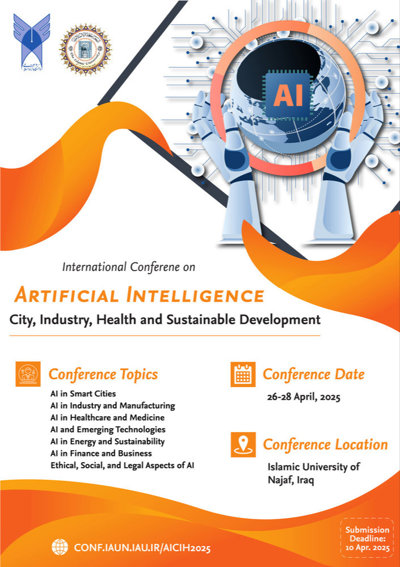0% Complete

نویسندگان :
کلمات کلیدی :
چکیده :
لیست مقالات بایگانی شده
Hajar Ahmadi - Azimeh NV Dehkordi - Farhad Azimifar - Seied Rabi Mahdavi - Mahnaz Roayaei
Shariat Radfar - Hamidreza Koosha - Ali Gholami - Atefeh Amindoust
Mina Pourmbarak Mahanaie - Fatemeh Ansari
فرشته احمدی - فرشته یمینی نجف آبادی
Bahar Asgari - Hamid Rastegari - Vahid Nejati
زهرا حسنی - فرشته احمدی
Soheil Ebrahimian - Hossein Shahinzadeh - Hamed Nafisi - Mahtab Bagheri - Majid Moazzami - Zohreh Azani
مصطفی مکی شهرضایی - عباس چترائی
محسن دلفانی - حمیدرضا بهمنی


